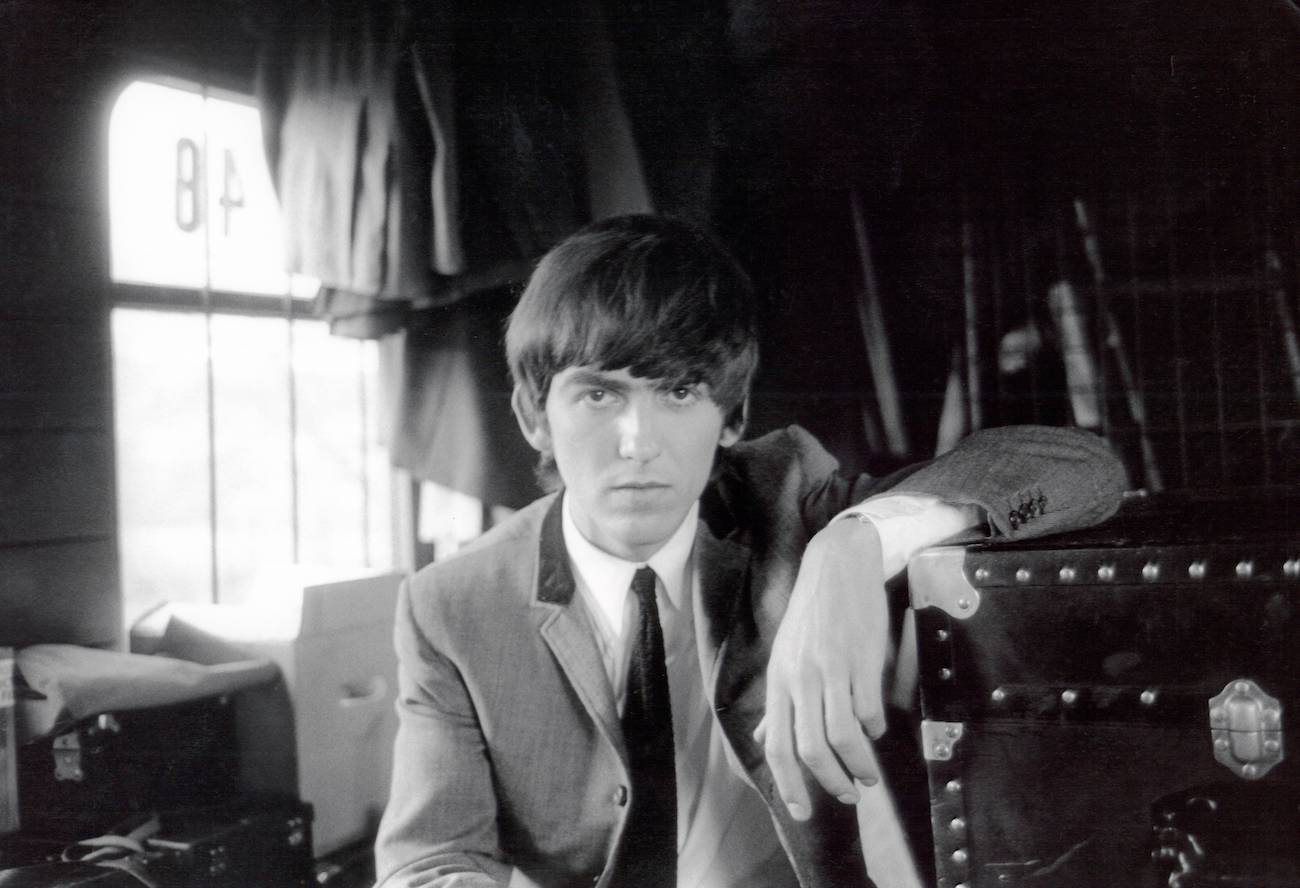George Harrison Was Spiritual But He Also Had a Dark Side
George Harrison is a bit of an enigma. While he could be a lovely, spiritual being, he could also be mean and cynical when he wanted to be. He was the life of the party, and everyone that came in contact with him adored him, but there was always a darker side to him. However, his meditation, spirituality, and connection to the Hindu faith helped him overcome his demons.

Mick Jagger said George Harrison was ‘combative’
The Rolling Stones’ Mick Jagger opened up about what he thought about George after he died of cancer in 2001. “He was a very complex character, both quiet and funny with a very sweet nature, but he also could be rather combative at times,” Jagger said, according to Idobi.
Jagger didn’t elaborate on why he thought George was combative. However, we can understand what he’s talking about, looking back at certain moments in George’s life. Like John Lennon and Paul McCartney, George knew how to bash someone in a song. Straight out of The Beatles, he wrote “Wah-Wah,” a song that subliminally said John and Paul had been giving him “a bloody headache.”
According to Ultimate Classic Rock, George also sent an angry telegram to President Nixon once. He wanted to extend his visa in the U.S. in the early 1970s but was denied. So, he sent this message to the president: “Sir, how can you bomb Cambonian citizens and worry about kicking me out of the country for smoking marijuana at the [same] time. Your repressive emperaour war monger ways stop before too piece luv. We will run the world Harry Krisher, Hare Hara Krishne Hare Hara Hare Hara Krishner. George Harrison.”
There were ‘hiccups’ in both of George’s marriages
In Martin Scorsese’s documentary George Harrison: Living in the Material World, George’s wife Olivia said he had a “crazy side.” George’s first wife, Pattie Boyd, would agree. In her memoir, Wonderful Tonight, Boyd described her ex-husband going in and out of periods of meditation and heavy partying. “He would meditate for hour after hour. Then, as if the pleasures of the flesh were too hard to resist, he would stop meditating, snort coke, have fun, flirting and partying.”
Later, at the end of George’s marriage to Boyd, he was having an affair with Ringo’s wife, Maureen. Later, during his marriage to Olivia, there were sometimes “hiccups” along the way. “He did like women and women did like him,” Olivia said in Living in the Material World. “It was hard to deal with someone who was so well-loved.” Meanwhile, Paul called his friend “red-blooded.”
George was cynical about fame and The Beatles
According to Boyd, The Beatles were often vicious to each other. George hated his time in the band. He felt like he was always being pushed to the back by Paul. “Like a little brother, he was pushed into the background,” Boyd told the Daily Mail. “He would come home from recording and be full of anger. It was a very bad state that he was in.”
According to the Daily Mail, as early as 1965, being a Beatle for George “had become ‘a horror story… awful… manic…crazy, a nightmare,’ an experience defined by ‘madness,’ ‘panic’ and ‘paranoia.'” George was nervous about being too popular. He struggled with fame and was often scared about the band’s level of fame. It all ate away at his psyche.
“George talked a lot about his nervous system, that he just didn’t want to hear loud noise anymore,” said Olivia (The Week). “He didn’t want to be startled. He didn’t want to be stressed.” Later, he did things his way, in his solo career, and didn’t “seek stardom,” his friend Tom Petty said. Interviews and award shows were not something George cared about either.
George was rude during an interview with MTV News
In the book George Harrison on George Harrison, Ashley Kahn transcribed George and his Traveling Wilbury bandmates’ interview with MTV News. The Washington Post wrote that the interview “reveals the dark side of male camaraderie.” George and his Traveling Wilburys bandmates were “rude, dismissive and sexist toward their female interviewer. Harrison dominates this interview, and his snarkiness is evident on the page but more so in the video where his demeanor and voice are cold and calculating — the leader of the pack. ‘We were having great fun until you came in here with the interview,’ he says, setting the tone of the encounter.”
This doesn’t seem like the George we know, but it could have been. However, there were dark things in George’s life. He always tried to snuff them out and be the best version of himself. George didn’t care what anyone thought of him; he didn’t even expect fans to remember him. But he will be remembered for all the good he did, not the bad.


